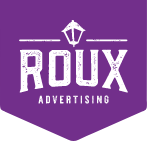If you look at my bio, you’ll see that I have degrees from both Loyola University and Tulane University. I hold both schools in high regard in terms of the teaching staff and curriculum. To show my support and appreciation for what they do and how I’ve directly benefited, I often speak at various marketing and advertising classes throughout the semester. For a while, I even jumped in the deep end and taught the Advertising Media Planning class at Loyola University from 2002-2010.
I recently had the pleasure of speaking to Juniors and Seniors at Tulane University, most of whom were marketing, management or business majors. Many of them have ambitions of working in the marketing and advertising fields after graduation. It’s incredibly interesting how in-tune today’s college students are with marketing and media strategy. Obviously, they’re on the upper end of the spectrum to when it comes to consuming media. When you combine that with their classroom learning, it’s easy to see their advanced interest in media, strategy and the inner workings of a campaign.
Case in point, the students in the class I spoke to last week were intrigued at how media strategy, planning and reporting works. Gauging by some of the questions they threw at me, it’s clear they’re anxious to get into the real world and bring value to a marketing team’s efforts.
Here are a few of the questions they asked:
- At what point in a campaign do you decide to remove a tactic if it’s not living up to expectation?
- How are ad blockers impacting the way you plan media campaigns?
- You use a lot of audience and marketing data to find opportunities. Where does that data come from?
- How do all of the privacy conversations impact what you can and cannot do?
- Sometimes the data reveals an odd pattern. How do you use that information?
- When you’re running a digital campaign, do you get to pick which websites the ads run on? Do you know where?
- Why does one digital ad unit perform better than another?
Looking back at the questions almost a week later, I’m still impressed at the level of knowledge they possess. Clearly, they have the makings of strong media people. These questions are applicable to not only classroom discussions, but real-world situations where a strong strategy is required for the brand to achieve success.
Roux is a media agency that specialized in audience analysis, strategy and analytics. If your brand is looking for answers to these types of questions, give us a call.

